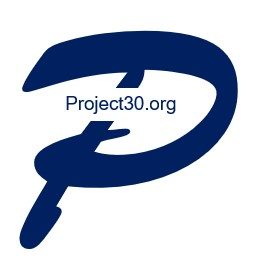Project30.org runs a program which is a combination of Pay it Forward and Random Acts of Kindness. See below on how these things will make a dramatic change to your life.
Pay It Forward and Random Acts of Kindness
“Pay It Forward” is a powerful concept popularized by the 2000 film of the same name. The idea, conceived by a young boy named Trevor McKinney for a school assignment, is beautifully simple yet profound: do a significant act of kindness for three people, and instead of asking them to repay you, request that they “pay it forward” by helping three others in turn.
Watch the movie Pay It Forward with your children or Grandchildren, it’s and oldie but a goodie.
This creates a chain reaction of goodwill, with each act of kindness multiplying exponentially. The core principle is that small actions can lead to significant positive changes in the world when people commit to helping others without expecting anything in return.
The beauty of Pay It Forward lies in its simplicity and accessibility. Anyone can participate, regardless of their circumstances, by performing acts of kindness and encouraging recipients to continue the chain. This approach to altruism empowers individuals to make a difference in their communities and beyond, fostering a sense of interconnectedness and shared responsibility for improving the world
Dr. Laurie Santos, in her research and discussions on The Happiness Lab podcast, emphasizes the positive impact of giving on both the giver and the recipient. While she doesn’t specifically use the term “unconditional giving” or “paying it forward” in the provided search results, her insights align closely with these concepts.
Santos highlights that giving money to help others not only benefits the recipients but also significantly boosts the giver’s happiness. She explains that this boost in happiness often encourages subsequent acts of generosity, creating a positive feedback loop between generosity and happiness.
Key points from Santos’ research and discussions include:
1. Giving money to help others tends to make people happier than spending it on themselves.
2. The act of giving creates a sense of social connection, which is crucial for the happiness benefit associated with prosocial spending
3. Autonomy in giving is important – people experience greater happiness when they choose to give voluntarily rather than being forced to do so
4. Even small acts of kindness can have a surprisingly positive impact, as they convey warmth and connection beyond just the material benefit.
5. People often underestimate the positive impact their kind acts will have on others, both in terms of the material benefit and the emotional connection created
While not explicitly discussing “paying it forward,” Santos’ research supports the idea that acts of kindness and generosity can create ripple effects, encouraging further acts of giving and fostering a more connected, happier community.
The concept is indeed known as “acts of kindness.” These are intentional actions performed to benefit others without expectation of reward. Research has shown that acts of kindness have numerous benefits for both the giver and the receiver
Benefits of Acts of Kindness
Improved Mental Health: Performing acts of kindness can reduce symptoms of depression and anxiety, boost mood, and increase life satisfaction.
Enhanced Social Connection: Kind acts foster a sense of connectivity, decrease loneliness, and improve relationships.
Physical Health Benefits: Kindness can lower blood pressure, reduce stress hormones like cortisol, and may even slow aging.
Increased Happiness: Both giving and receiving kindness can lead to greater happiness and self-esteem
Examples of Acts of Kindness
Paying for a stranger’s coffee or meal
Giving away chocolates or flowers
Dropping a $5 note for someone to find
Helping a neighbour with chores or errands
Sending a thoughtful message to a friend
Acts of kindness don’t have to be grand gestures. Even small, everyday actions can have a significant impact on someone’s day and overall well-being. As one person shared, “It’s nice to be nice and you never know what’s going on in their life”.
Remember, kindness is contagious. When we perform acts of kindness, we often inspire others to do the same, creating a ripple effect of positivity in our communities
The Science of Well-Being
This will be one of the most amazing courses you will do
Its free and you do not need any qualifications
This is Dr. Santos’ original course based on her popular Yale class. Key details include:
10 modules over approximately 10 weeks
Covers topics like misconceptions about happiness, overcoming biases, and evidence-based happiness strategies
Includes video lectures, readings, and “rewirement” activities to build happier habits
Over 4.7 million people have enrolled
Rated 4.9/5 stars from over 38,000 reviews
Enrol at Coursera https://www.coursera.org/learn/the-science-of-well-being
They have a Programme for Teenagers
The Science of Well-Being for Teens
Free to audit
6-week course structure
Over 160,000 enrolled students
Includes weekly “happiness homework”
Suitable for teens, parents, and educators
Optional paid certificate available
Both courses can be started at any time and completed at your own pace. While the courses are free to take, Coursera offers optional paid certificates upon completion. The original course includes topics like misconceptions about happiness, overcoming biases, and evidence-based strategies for improving well-being, while the teen version is specifically adapted for younger audiences with age-appropriate content and examples.
